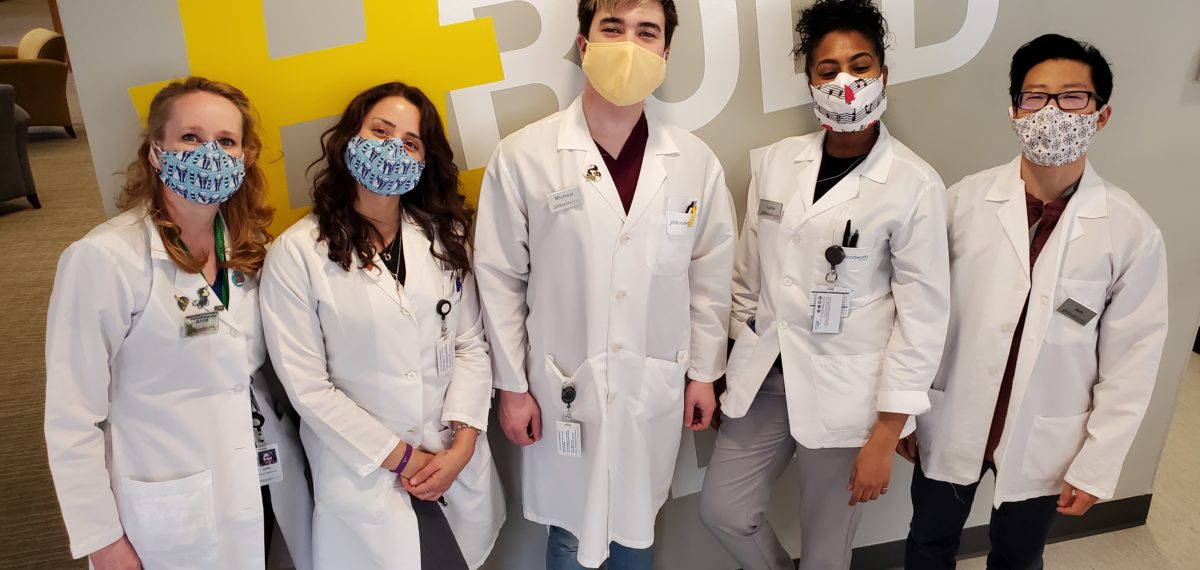

When you step into a Bloodworks Donor Center or mobile drive, you enter a world governed by quality and regulations. There’s a reason that your favorite phlebotomist asks your full name throughout your donation even though she’s been drawing your blood for years: we need to follow strict processes to ensure a safe and reliable blood supply for local patients.
Bloodworks follows FDA and other regulatory guidance each and every day, and we’ve adhered to recommendations from CDC and other public health agencies throughout the evolving COVID-19 crisis.
The CDC now recommends that masks and other cloth coverings be worn on the face as a measure to slow the spread of COVID-19.
We’re working on our smizes (smiling with our eyes): Bloodworks collections staff are required to wear a mask, face shield, or both.
As you’ve read, commercially made surgical and N-95 masks and other personal protective equipment (PPE) are desperately needed by high-risk heath care workers on the front lines of the COVID-19 pandemic.
Giving blood is an essential activity, involving only healthy donors and staff, so homemade cloth face masks are sufficient added protection for the health and safety of our donors and employees.
Our phlebotomists are wearing masks that have been donated by community individuals and businesses or sewn by volunteers.
We encourage donors to wear masks to their donation appointments and whenever they are in public to lower everyone’s risk of transmission.
Wear a face mask in settings where social distancing may be hard to maintain, like a trip to the grocery store, pharmacy… or giving blood!
Masks can cut down on the transmission of coronavirus, not prevent it. If you do have COVID-19 and don’t know it, a mask can help prevent you from spreading it from others, but wearing a mask is not a substitute for staying home if you’re sick or for social distancing of at least six feet.
Masks must also be properly worn and laundered or disposed of to prevent the spread of coronavirus and other infectious diseases. Your washing machine is sufficient for this.
If you handle a used mask improperly, you risk transferring germs from your mask to your hands to whatever you touch next.
Best practices:
There are many tutorials for face masks out there, and you may be wondering how effective they are.
According to the CDC, face masks should:
Most of the mask patterns you’re seeing online will meet these criteria, and Bloodworks Medical Director Katie Wilkinson, MD has gone the extra step to put together a tutorial on how to sew two different types of masks.
Even better: Katie herself has donated 100 masks to Bloodworks staff.
Together, we can keep the local blood supply (and each other) safe!
If you would like to volunteer to sew or donate masks, please contact volunteers@bloodworksnw.org
Tell Us What You Think!